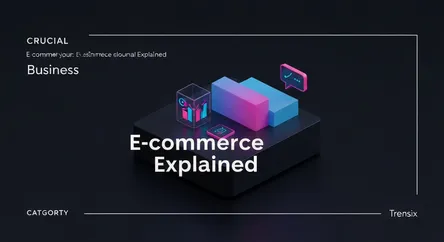Business
E-commerce Explained

Discover E-commerce, the buying and selling of goods online. Learn why this digital marketplace is essential for modern startups and consumers alike.
What is it?
E-commerce, or electronic commerce, refers to the buying and selling of goods or services using the internet, and the transfer of money and data to execute these transactions. It encompasses a wide variety of business models, including business-to-consumer (B2C), business-to-business (B2B), and consumer-to-consumer (C2C). From ordering a pizza on your phone to a corporation purchasing software services, e-commerce has fundamentally changed how we transact. Platforms like Shopify, Amazon, and Etsy have made it easier than ever for businesses of all sizes to establish an online presence and sell to a global audience.
Why is it trending?
The e-commerce trend is accelerating due to a combination of technological advancement and shifting consumer behavior. The widespread adoption of smartphones, faster internet, and secure online payment systems has made online shopping more accessible and convenient. Furthermore, the global pandemic acted as a massive catalyst, pushing even reluctant consumers and businesses online. For startups, the low barrier to entry compared to traditional brick-and-mortar retail makes it an attractive model, allowing them to launch quickly and scale efficiently.
How does it affect people?
E-commerce profoundly impacts both consumers and businesses. For consumers, it offers unparalleled convenience, access to a global marketplace with a wider selection of products, and competitive pricing through easy comparison. For entrepreneurs and startups, it democratizes retail, enabling them to compete with larger companies without the need for significant physical infrastructure. It allows for direct-to-consumer relationships, valuable data collection for personalized marketing, and the ability to operate a business from virtually anywhere, fostering innovation and economic growth.